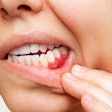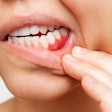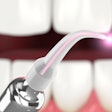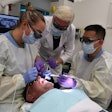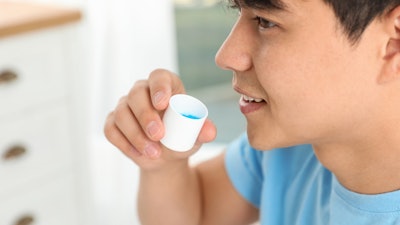
Gargling with mouthwash may hold significant promise in mitigating the incidence of periodontitis, as well as managing type 2 diabetes mellitus (T2DM), according to a study published in Scientific Reports.
Additionally, younger patients and those with higher initial levels of glycated hemoglobin (HbA1c) experienced notable decreases in their HbA1c and oral bacterial species levels after rinsing with mouthwash, the authors wrote.
"Patients with T2DM complicated by periodontitis have more red complex species, and poor glycemic control is thought to be associated with increased levels of red complex species in the oral cavity," wrote the authors, led by Dr. Saaya Matayoshi of Osaka University in Japan, (Sci Rep, February 2, 2024, Vol. 14, 2777).
The research team investigated how using mouthwash affects the levels of certain harmful bacteria known as red complex series, like Porphyromonas gingivalis (P. gingivalis), Treponema denticola (T. denticola), and Tannerella forsythia (T. forsythia), as well as HbA1c levels in patients with T2DM, the authors wrote.
A total of 173 patients were first asked to gargle with water for six months followed by six months of gargling with a mouthwash containing chlorhexidine gluconate. During each visit to the clinic, the team collected saliva samples and extracted bacterial DNA to detect the presence of these harmful bacteria using a polymerase chain reaction lab technique. Furthermore, HbA1c levels were measured using a blood sample to understand the impact of mouthwash gargling on blood sugar control, they wrote.
They found that younger patients or males who gargled with mouthwash experienced a significant decrease in the number of red complex series. Additionally, among younger patients or those with higher initial HbA1c levels, gargling with mouthwash led to a significant reduction in HbA1c levels, they wrote.
The study, however, had limitations. Different patients showed various trends in the change of bacteria and blood sugar control as they gargled with mouthwash potentially due to individual differences, including having other systemic diseases, taking certain medications, and periodontal status, they wrote.
"In summary, T2DM patients can decrease red complex species by gargling with mouthwash two or three times a day, leading to possible improvement in glycemic control, especially in younger patients," Matayoshi et al wrote.










